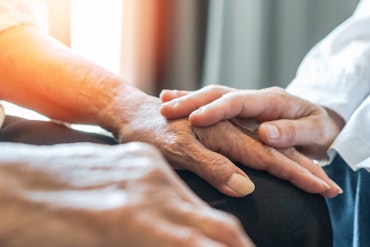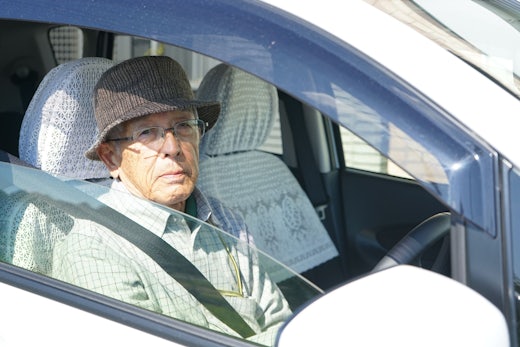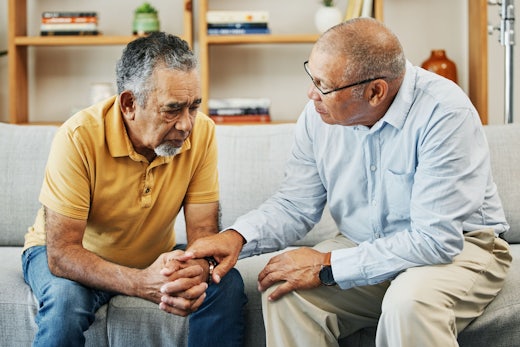Being clear about death and dying
An assessment tool has been developed that helps doctors and caregivers more accurately identify elderly patients whose death is imminent and unavoidable at the time of hospital admission.

An assessment tool has been developed that helps doctors and caregivers more accurately identify elderly patients whose death is imminent and unavoidable at the time of hospital admission.
University of New South Wales (UNSW) developed the Criteria for Screening and Triaging to Appropriate aLternative care (CriSTAL) tool which identifies patients who are likely to die within a three month period.
Elderly people with chronic, age related illness commonly endure repeated admissions to hospital in the last months of life and may be subject to distressing, expensive and futile medical procedures. The new tool provides more certainty in prognosis and enables an end-of-life care plan to be developed that best meets patients’ needs.
A paper describing the assessment procedure is published in the journal BMJ Supportive & Palliative Care.
“Most terminally ill people want to die at home, but in fact three quarters end up dying in acute hospitals, often after intrusive, expensive and ultimately pointless medical procedures,” says Dr Magnolia Cardona-Morrell, who led the research at UNSW Medicine’s Simpson Centre for Health Services Research, alongside UNSW professor of intensive care, Ken Hillman.
Professor Hillman is a well known advocate for dying with dignity and has written books and articles on the subject.
“Current acute hospital systems often fail to recognise or cater to the needs of people for whom death is imminent and unavoidable. They are geared for aggressive treatment and emergency resuscitation, not peaceful, harm-free transitions,” Dr Cardona-Morrell says.
“Elderly people who are dying need to be protected from heroic but intrusive live-saving hospital interventions that often only prolong suffering rather than enhance quality of remaining life.”
CriSTAL consists of a 29 item screening list that can be completed by a nurse or a doctor before hospital admission and takes account of factors such as vital signs, cognitive impairment, recent hospitalisations, measures of frailty and the presence of active disease such as cancer or chronic kidney or liver disease.
The process is informed by an extensive review of the strengths and weaknesses of medical literature that attempts to 'diagnose dying' or devise an end of life assessment tool for clinical use. Most of the existing tools rely on clinical judgment or subjective assessments and value judgments, others are unacceptably inaccurate.
The authors say developing a more objective and accurate way of identifying patients near the end of life is crucial to prevent inappropriate hospital admission and unnecessary treatments.
“It can be difficult to reach a decision that balances the rights of patients to die with dignity and the expectations of families about satisfactory end of life care, while considering the limitations of health resources,” they write.
“Delaying unavoidable death through aggressive and expensive interventions may not influence patient outcome; may compromise the bereavement process for families; and cause frustration for health professionals.”
Dr Cardona-Morrell says the research is not about dictating the withdrawal of treatment, but about minimising uncertainty and establishing objective criteria for imminent death.
“It’s about coming to terms with the fact that death from old age and multiple chronic conditions is part of a natural process and that medicine cannot work miracles. And it’s about ensuring that people at the end of their lives have the best possible care and support, in line with their wishes,” she says.
Professor Hillman emphasises that “the management of elderly frail patients at the end of life in acute hospitals is one of the greatest challenges facing health care. Most patients and their carers do not wish to be admitted to a hospital at the end of their life and this is a major contributor to the unsustainable costs of health care.”
CrisTAL will be trialled in selected hospital emergency departments in Sydney this year. It will include communication training for medical staff, so they can ably and comfortably discuss with dying patients and their carers the limitations of medical treatment and the most appropriate place and process of dying.
The paper, “Development of a tool for defining and identifying the dying patient in hospital: Criteria for Screening and Triaging to Appropriate aLternative care (CriSTAL)” is an Open Access publication.
The research was funded by a grant from the National Health and Medical Research Council of Australia.























Comments